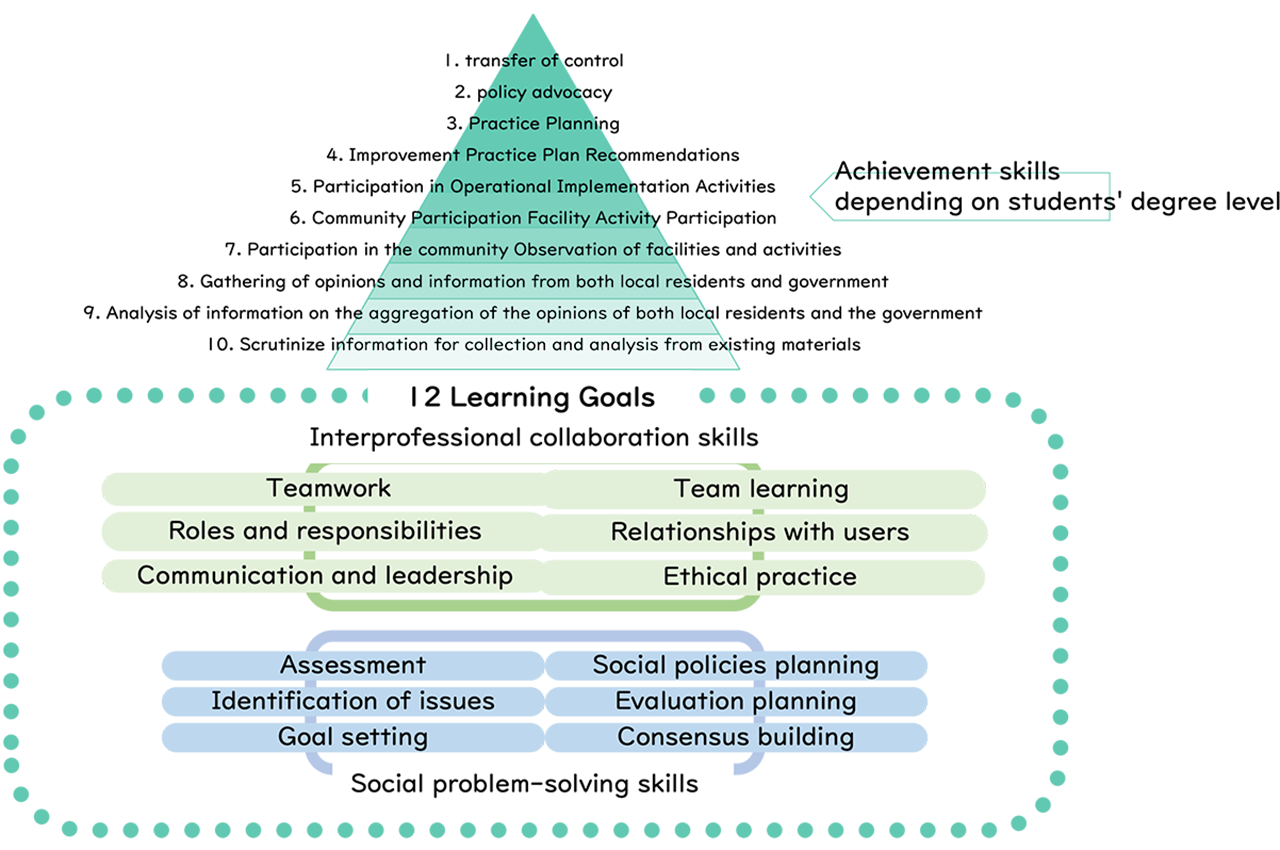
At GRIP, we have set 12 learning achievement goals that combine “interprofessional collaboration skills” and “social problem-solving skills.” Participating students set a level of attainment suitable for each individual based on their degree and ability, and work on learning to achieve it.

This program is designed for letting students from multiple countries and fields of specialization learn from one another. It is based on and is an expansion of Chiba University’s interprofessional education (IPE) across schools of Nursing, Medicine, and Pharmaceutical Sciences launched in 2007. The program develops human resources who can tackle various regional-specific health issues worldwide and derive the optimal solutions for each context. The GRIP Program includes a prior learning phase at the JV-Campus, which will be followed by a field study and a virtual workshop for discussing results.
| Class | Contents |
|---|---|
| Basics of Interprofessional Collaboration | The origin, theoretical background, and necessity of IPE (Interprofessional Education) will be discussed in relation to SDGs, and practical activities of interprofessional collaboration will be learned from basic theory. |
| Interprofessional Collaborative Practice 1 | Learn the roles and responsibilities, communication, and relationship building with patients, users, and residents necessary for interprofessional collaborative practice activities. |
| Interprofessional Collaborative Practice 2 | Learn leadership, membership, and ethical practice for interprofessional collaboration practice to improve service quality for patients, users, and residents. |
| Cultural Competency and Cultural Humility | Learn intercultural practices that facilitate communication between countries with different traditions, educational systems and languages. |
| Solving Social Issues Basics | Using simulation scenarios, students will learn the flow of regional assessment, problem extraction, goal setting, policy formulation, and evaluation plan formulation necessary for solving social issues. |
| Solving Social Issues Advanced | Use simulation scenarios to learn how to build consensus with stakeholders, how to resolve conflicts, and how consultations are necessary to solve social problems. |
| Interprofessional Social Problem Solving Exercise (ISL) | Participate in local service activities as a team at the location of an overseas partner university and work to solve social problems related to health. It consists of pre-learning, on-site exercises, and post-event virtual workshops. |